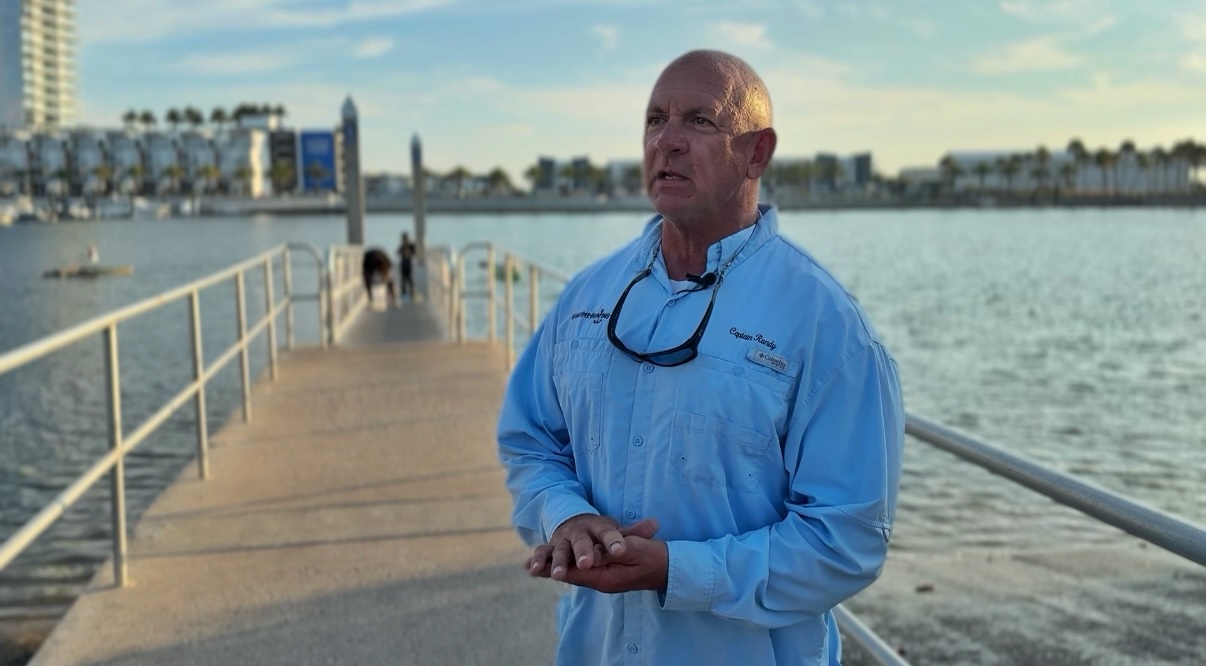PINELLAS COUNTY, Fla. — A family fishing trip that turned frightening in the Gulf is now prompting fresh reminders about boating safety from a veteran of the waters.
Four Polk County family members were rescued Tuesday after their 24-foot boat capsized about 26 miles off Clearwater. The Coast Guard says an Air Station Miami aircrew spotted the group clinging to the overturned vessel before guiding a Station Sand Key crew to pull them to safety. All four were brought back to shore in stable condition.
WATCH: After Clearwater rescue, expert urges boaters to get gear that could save their lives
One of the boaters, Dennis Woods, said the vessel rolled so fast he didn’t even have time to radio for help.
“It was probably less than five minutes before it rolled, and I didn’t have time to contact the Coast Guard,” Woods said.
Family members on land spent the night waiting for updates. Teresa Rucker says she held onto faith.
“I was trusting God,” she said. “I told every one of them, ‘Just remember God’s got ‘em in his hands.’”
The rescue is the kind of emergency Capt. Randy Lopez knows well. Lopez, a former marine patrol officer and current boating instructor with Blue Line Boating, spent 20 years on Tampa Police Department’s Marine Patrol.
“I patrolled the waters. We rescued people. We did boating safety, boating inspections, because our goal was we wanted everybody to get out there and enjoy what we have here in the Bay Area, but we wanted you to do it safely," he said.
Lopez says emergencies like the one that played out this week can unfold on any vessel, which is why basic equipment is crucial, starting with a properly fitted life jacket for every person on board.
He also urges boaters to file a float plan with someone they trust so rescuers know where to start looking if something goes wrong.
Another key: having a reliable way to reach help. Lopez says cell phones work fine near shore, but offshore boaters should always have a VHF radio or an emergency position-indicating radio beacon (EPIRB). The beacon automatically alerts the Coast Guard if it gets wet or submerged.
“Your boat capsizes, it starts taking on water, starts to sink, that EPIRB gets wet, it automatically sends a beacon to the Coast Guard,” Lopez said. “If you’re unconscious, or if you’re unable to get to your cell phone, the EPIRB automatically activates and gets us on the way.”
EPIRBs can cost anywhere from around $500 and up, but Lopez says they can mean the difference between a bad day and a terrible one.
“We want them to prepare long before we get to that point to help us respond even better,” he said.
The Coast Guard also reminds boaters to carry signaling devices and keep a VHF radio on Channel 16, where officials monitor for emergencies around the clock.
Share Your Story with Chad

Chad Mills calls Polk County home and has witnessed the area’s growth firsthand. He keeps his eye on the City of Lakeland, our agriculture community, and helping you navigate everyday expenses. Use the form below to share your story ideas with Chad.
.

Family mourns Brandon High School student killed by train
Jewell McMillan, Jamar's mother, tells Tampa Bay 28 reporter Annette Gutierrez she didn't realize Wednesday night would be the last time she'd see her son alive





